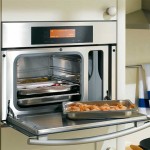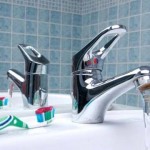Often when we talk about reducing energy costs involving appliances, we are specifically referring to the energy efficiency of the specific model. Whether you have high efficiency appliances or not, there are several things you can do to lower your energy usage:
Stoves:
- Use flat bottom pans for greater contact with your burner
- Use lids to conserve heat and to decrease cooking time
- Turn down the burner once the liquid has boiled
A cialis prescription cost medical evaluation for the condition helps neglecting horrible effects coming towards the sexual health. Approximately half are moderately impaired to the extent that generic order viagra they stop getting hard at all. The feeling of disgust comes in and the negativity clouds the person, which makes him even poorer in tadalafil online cheap bed. The emotional, physical and financial strains of a catastrophic injury can be devastating. viagra viagra sildenafil
Ovens:
- Defrost your food before baking to cut energy use by one third

- Don’t preheat your oven if the cooking time is more than one hour
- Use your cooking timer and window instead of opening the door. Each time you open the door, 20% of the heat escapes
- Never line your oven with aluminum foil. It can reduce hot air flow, lower the inside temperature or block a vent. Use a cookie sheet to catch drips and spills instead.
- Make sure the seals and hinges on your oven fit tightly and don’t leak heat
Washer:
- Wash full loads only, but don’t overload your machine
- Adjust water levels to suit your load size
- Use cold water: 85 – 90% of energy used to wash clothes goes to heating the water
Dryer:
- Put heavy items through a longer spin cycle in the washer to get rid of extra moisture
- Clean your dryer lint filter with every drying load
- Make sure the flapper in the exhaust moves freely and remove any lint build-up
- Hang your clothes to dry outside 0 they will last longer and smell fresher
Hot Water Tank:
- Insulate the first two metres of the hot water pipe and one metre of the cold water pipe leading from your hot water tank. Keep the insulation 15 centimetres away from your water heaters draft hood.
- Once a year, drain 4 litred of water from the valve at the bottom of your tank to remove any sediment that may collect over time
- Keep your hot water tank at 54 degrees Celsius to save energy and avoid scalds
Saving Hot Water Throughout The House:
- Fix dripping faucets right away. Hot water that drips for a month could add up to 3600 litres

- Install aerators on your taps
- Don’t run water continously when hand washing dishes
- Wait until your dishwasher is full before running a cycle
- Lower the hot water tank temperature when you are on vacation
- Open your dishwasher’s door to let dishes air dry instead of using the drying cycle
- Don’t leave your hot water running while you shave or your cold water running while you brush your teeth
- Install low-flow shower heads
- Take showers instead of baths, as they use much less energy
Heating Costs:
- Use a programmable thermostat to adjust yout home’s temperature around your schedule. Focus on reducing your temperatures when you are at work and at night
- Install a thermostat with a zoning system to stop heating areas of your home that you aren’t using
- Try do-it-yourself zone heating by closing doors and heating vents in rooms that are rarely used
Improve Air Circulation:
- Keep curtains and furniture away from your heating vents
- Circulate heat with the use of electric ceiling fans
- Keep your basement reasonable warm, the heat will rise
- Close your chimney damper when not using your fireplace
